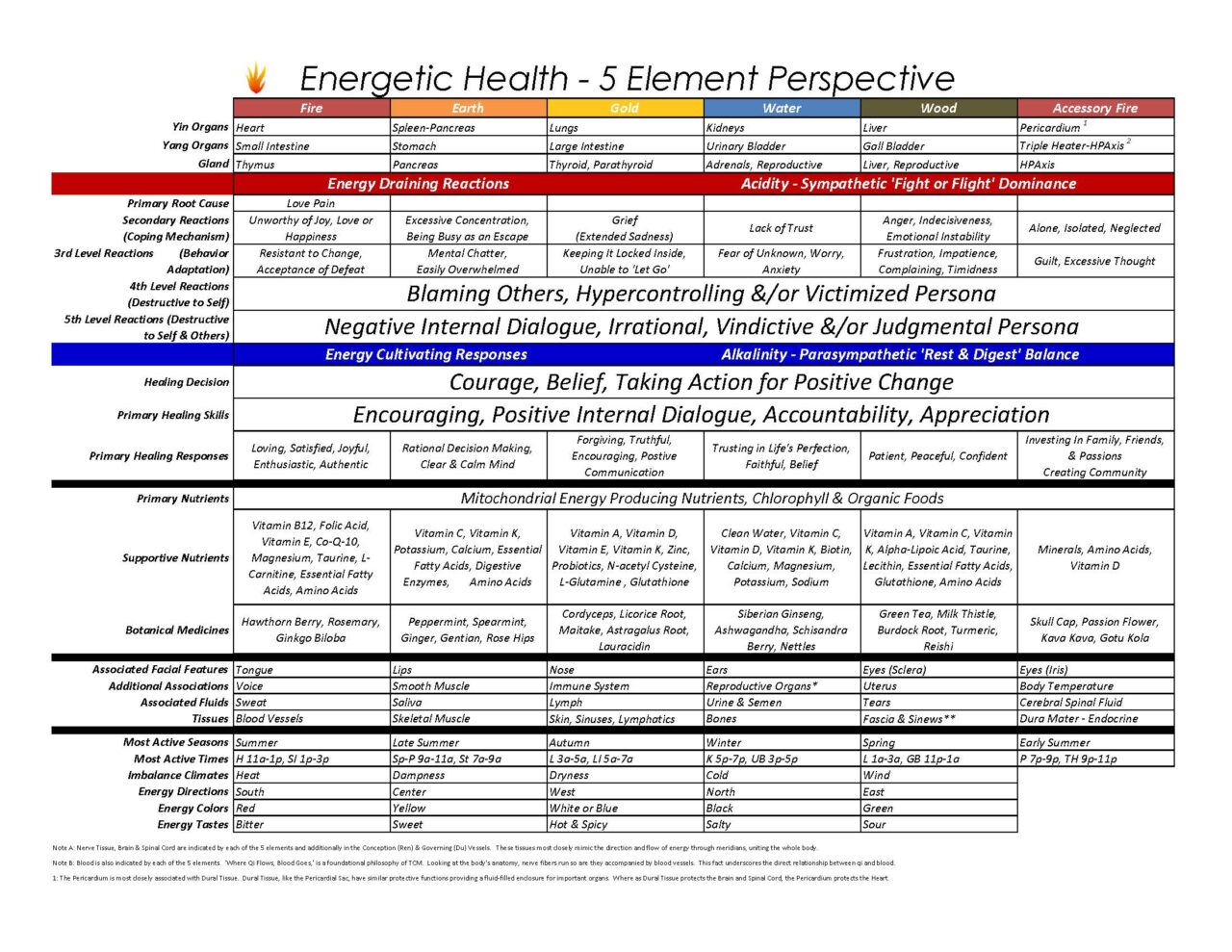Magnesium:
Essential Mineral For Health and Well-Being
ARTICLE IN A NUTSHELL
1. Magnesium has an indispensable role in activating enzymes and producing energy molecules like ATP.
2. Identify and understand the risks of magnesium deficiency, including emotional and physical health impacts.
3. The significance of Magnesium in the holistic interplay of emotion, anatomy, physiology, and biochemistry.
"Magnesium is necessary for activating over 300 absolutely crucial enzymes, and its importance can be witnessed in manufacturing the energy molecule of ATP (Adenosine Triphosphate)."
INTRO
In the quest for wellness, magnesium is not just a supplement but a vital part of our health, from the cellular level to our emotional landscape. This mineral, pivotal for over 300 enzymatic reactions, isn’t merely a component of health; it’s the essence of vitality itself. Magnesium stands at the crossroads of energy production, muscle functionality, and emotional stability, offering a holistic key to a life full of energy and harmony.
The journey to understanding magnesium’s impact requires us to look into the very fabric of our being. It orchestrates the dance of ATP, the energy currency of life, ensuring every cell in our body thrives in its energetic state. Beyond its biochemical roles, magnesium shapes our emotional state, calibrates our physiological rhythms, and supports our anatomical strength. From the green hue of chlorophyll to the structure of our bones, magnesium is a testament to nature’s wisdom, seamlessly interweaving our health’s complexity with the simplicity of a single, essential nutrient.
As we explore health, magnesium guides us, showing that natural energy comes from balancing the basic and the intricate, the body and the mind. It invites us to rethink our relationship with nutrition, not just as a source of sustenance but as a foundation for an energetic existence.
Get Your FREE eBook!
Do You Eat Healthy? Sign up to get our FREE eBook & find out:
Energetic Health Chapter 5: The Art of Eating Healthy
Includes SIXTEEN ways to help you eat your way to Health & Freedom!

ESSENTIAL KEY TO YOUR HEALTH AND VITALITY
What makes Magnesium so amazing for you and your Energetic State, Emotional State, Anatomy, Physiology & Cellular Biochemistry? Having trouble going number 2? Blood pressure a little high? Are you seriously exhausted?
Magnesium is necessary for activating over 300 absolutely crucial enzymes, and its importance can be witnessed in manufacturing the energy molecule of ATP (Adenosine Triphosphate). So, without Magnesium, energy production wouldn’t be possible! It’s an essential nutrient, which means that your body can’t synthesize it and, therefore, must get it from foods, herbs, and/or supplements. Magnesium is also a water-soluble nutrient, which means it must be replenished daily to maintain therapeutic levels in your bloodstream and tissues. (1)
Glutathione, also known as ‘the master antioxidant,’ protects your body from the damaging effects of free radicals that inhibit your cells from doing their job. Interestingly, magnesium is required for glutathione synthesis, and additionally, magnesium helps regulate calcium, sodium, and potassium.
Magnesium is also the central molecule for chlorophyll, which helps give green leaves their color. Chlorophyll is virtually identical in biochemical structure to an essential aspect of your body, the heme subunits building blocks of each and every hemoglobin molecule that makes up a single Red Blood Cell (RBC). Think about this for a moment. Each Hemoglobin molecule is comprised of 4 Heme subunits. Each RBC is comprised of approximately 300 million hemoglobin molecules. At any given moment, the average person has over 30 Trillion RBCs in their bloodstream. With your body making about 29 million new RBCs every minute of your day, the daily consumption of Chlorophyll is absolutely essential. And with that daily consumption of something green guess what else you get? That’s right, a daily dose of Magnesium to help activate all your body’s enzymatic needs. Coffee or Chlorophyll, you decide which one is more important. (2)
MAGNESIUM DEFICIENCY
Magnesium deficiency can be associated with Fatigue. People at higher risk of Magnesium deficiency include those with renal or gastrointestinal disorders, older people, and people suffering from chronic alcoholism. High blood sugar can also contribute to magnesium deficiency. (3)(4)
Here are some signs & symptoms of acute Magnesium deficiency:
• Fatigue
• Insomnia
• Muscle Cramps
• Tremors
• Loss of Appetite
• Nausea
• Headaches
• Depression
And signs & symptoms of chronic Magnesium deficiency:
• Chronic Fatigue Syndrome
• Osteoporosis (Bone Loss)
• Diabetes
• Depression/Anxiety
• Mood Instability
• Hypertension (High Blood Pressure)
"Everything that has gone into my education here at EHI
was super special! I'm forever grateful for the wonderful
learning experience."
MAGNESIUM'S ROLE IN TRADITIONAL CHINESE MEDICINE AND WELLNESS
Because of magnesium’s far-reaching health effects, its energetics fall into the Traditional Chinese Medicine (TCM) categories of the Fire Element (Heart, Small Intestine) and Water Element (Kidneys, Urinary Bladder, and Adrenal Glands). (5)(6)
Eating organic alkalizing foods, herbs, and supplements rich in magnesium that support these elements and their organs & glands is the key to achieving the many benefits of an energetic, healthy lifestyle.
Fire Element: Alkalizing foods and herbs, including foods that are naturally bitter and red in color (flavonoids, lycopene, and resveratrol), thoughts & lifestyle practices, such as cardiovascular exercise, that support your fire element will positively affect your Heart, Small Intestine, and Thymus. They assist you overcome feeling unworthy of love and resistance to change and calm your nervous system, leading to improved digestion and sleep.
Water Element: Alkalizing foods and herbs, including naturally salty foods and blue/purple (black) in color (Anthocyanins), are often beneficial. Thoughts & lifestyle practices, like drinking clean water & organic herbal teas, can give your Water Element the hydration it needs to perform at a high level daily; that support your Water Element will positively affect your Kidneys, Urinary Bladder, & Adrenals. This will typically generate positive energy-cultivating moods that can help you overcome anxiety while calming your nervous system, leading to improved digestion and sleep.

"Rooted in Nature. Backed by Science"
Experience Natural Doctor-Approved Nutrients!
FROM PLATE TO MOOD
Emotion
The foods we eat become the moods we feel. How is this possible? It’s just food, after all, right? If we were to say, ‘You are what you eat’, would that seem far-fetched? Of course not; the foods you eat literally become structure within your body. Fats (healthy or unhealthy) become integrated within the phospholipid bilayer of your cells. Proteins (healthy or unhealthy) become your bones, muscles, and organs. We literally are what we eat…but can the same be true for our emotional state? What you feel has a great deal to do with what you eat, too. Neurotransmitters, the molecules of emotion, are biochemical compounds your body makes every moment of every day. And where does the source material for your neurotransmitters come from? That’s right…from the food you eat. What you eat becomes what you feel. Eating acidic foods tainted with pesticides, GMOs, chemical preservatives, and other chemical pollutants, and your moods will trend towards negative energy and energy-draining reactions because pollution disrupts homeostasis. Anger isn’t just anger; it’s a sign of nutritional imbalance, typically the result of too many chemicals in the bloodstream. Eat organic plant-based alkaline foods, free from the chemical pollutants that effectively short-circuit your nervous system, and your moods will trend towards positive, energy-cultivating responses. It’s not rocket science; food is medicine, even for the mind, and clean foods lead to clean moods.
With respect to magnesium, a food like organic pumpkin seeds that stimulates your fire element can lead to energy-cultivating responses like feeling loving, satisfied, joyful, enthusiastic, and authentic. A food like organic spinach that stimulates your water element can lead to energy-cultivating responses like trusting in the perfection of life.
Anatomy
Looking at health and the human body holistically, it’s imperative that you understand how everything is connected. You are a luminous being, and your body is designed to heal. Your energetics influence your emotions. Your emotion influences your anatomy in what most people term body language. Your anatomy influences how your body functions, aka your physiology. Your physiology influences your cellular biochemistry. And coming full circle, your cellular biochemistry influences your energetics. At EHI, we call this series of amazing holistic connectivity The Cycle of Influencing Energy (CoIE). Literally, nothing is independent of or isolated from anything else. It’s all you and what you do for one aspect of your CoIE, you do for all.
Magnesium plays an essential role in virtually all aspects of the physical body because of its involvement in over 300 enzymatic processes, including the production of ATP and synthesis of one of the body’s most critical antioxidants, glutathione.
Magnesium affects the anatomy in two ways: First, due to its being a calcium antagonist, it promotes muscle contraction/relaxation. Second, magnesium helps maintain bone integrity. Did you know that 50-60% of the body’s magnesium is stored in the bone? When magnesium gets too low, parathyroid hormone levels decrease, which then diminishes the absorption of calcium from your diet via the intestines. As is so often the case, when one aspect of the body is out of balance, there is a ripple-like domino effect across many other aspects of the body, and that is certainly the case with magnesium as well.
Physiology
Magnesium plays a huge role in many of the functions of the human body. Physiologically, magnesium has several essential functions and benefits. (7)
Immune System & Inflammation
• Diets low in magnesium are tied to increases in inflammation.
• Low-grade inflammation can be related to heart disease, diabetes, and obesity.
• Restoring magnesium to appropriate levels also normalize inflammation levels partially by suppressing Interleukin (IL-6).
• IL-6 is a pro-inflammatory trigger.
Cardiovascular System
• Magnesium impacts the cardiovascular system through its effect on the contractibility of the myocardium.
• It influences the movement of ions like sodium, potassium, and calcium across the sarcolemma membrane.
• It influences the electrical activity and conduction system of the heart, promoting smooth, rhythmic, efficient contractions.
• Magnesium also helps to relax smooth muscle tone, helping to lower elevated blood pressure associated with stress.
Endocrine System & Blood Sugar Management
• Low magnesium diets have been correlated with elevated blood sugars, which go hand in hand.
Digestive System
• Magnesium relaxes smooth muscles of the digestive tract as well promoting peristalsis & optimal digestion.
• Normalizes bowel function and movement in cases of constipation.
Biochemistry
Biochemistry focuses on the biochemical processes that continuously occur inside the body at the cellular level for energetic functioning. Biologically, magnesium has varied roles, from DNA Repair to ATP Production and protein Synthesis. (8)
DNA Repair
• Nucleotide Excision Repair (NER) requires 20 different proteins.
• Magnesium acts as a co-factor in nearly every NER stage of DNA Repair.
Neurotransmission
• Magnesium affects the brain cell receptor NMDA (N-methyl-d-aspartate)
• When magnesium is deficient, depression can increase due to problems with NMDA receptors
Enzymatic Metabolization
• Magnesium activates cellular enzymes to help biotransform proteins, carbs, lipids & nucleic acids for cellular use.
• Essential co-factor to produce ATP (energy) within mitochondria.
• Magnesium also assists in the transportation of electrolytes across cell membranes.
Cellular Respiration & Enzymatic Detoxification
• Maintenance of the mitochondrial electron transport chain
• Essential for glutathione synthesis for cellular detoxification
• A diet deficient in Magnesium can lead to mitochondrial dysfunction
To explore how these concepts interconnect and dive deeper into holistic health, visit our Holistic Nutrition Certification program at Energetic Health Institute. (9e

Confused? Don't Be.
Get your health questions answered
by experts who really care!
FINAL THOUGHTS
The food we consume directly influences our moods. This connection stems from the fact that what we eat transforms into the very structure of our bodies and impacts our emotional well-being. Every bite of food contributes to the creation of neurotransmitters, the chemicals that convey our feelings. Thus, consuming foods contaminated with harmful chemicals can lead to negative emotions, while organic, plant-based foods encourage positive, uplifting moods. Magnesium-rich foods, such as organic pumpkin seeds and spinach, play a key role in this process. They not only nourish our body but also enhance our emotional state, fostering feelings of love, satisfaction, joy, enthusiasm, and trust.
ABOUT THE AUTHOR
Dena Wessler is a graduate of the Energetic Health Institute, Certified Holistic Nutritionist & Certified Raw Chef. She has worked in the natural healing arts and mental healthcare sectors for over 30 years. Having healed herself from the debilitating effects of Chronic IBS, Dena’s passion now focuses on helping people heal by rediscovering their unique worth and love of self.
More Articles We Think You'll Love
ARTICLE CITATIONS
- https://pubmed.ncbi.nlm.nih.gov/10506126/#:~:text=Chemical%20mechanism%20of%20ATP%20synthase,from%20ADP%20and%20inorganic%20phosphate
- https://agrocares.com/magnesium-why-is-it-important-for-plant-growth/#:~:text=Magnesium%20fulfills%20several%20functions%20within,is%20essential%20for%20phosphate%20metabolism.
- https://lpi.oregonstate.edu/mic/minerals/magnesium
- https://draxe.com/nutrition/vitamins/9-signs-magnesium-deficiency
- https://www.ncbi.nlm.nih.gov/pmc/articles/PMC5741387/
- https://wshcare.org/nutrients-in-chinese-medicine-part-5-electrolytes/
- https://www.ncbi.nlm.nih.gov/pmc/articles/PMC4455825/#:~:text=Magnesium%20further%20modulates%20insulin%20signal,function%20of%20proteins%20and%20mitochondria.
- https://www.ncbi.nlm.nih.gov/pmc/articles/PMC8065437/#:~:text=Mg2%2B%20is%20involved%20in,and%20RNA%20stability%2C%20and%20cellhttps://www.superfoodly.com/orac-values/
- https://www.energetichealthinstitute.org/what-an-ehi-nutrition-certification-does-for-you/






DISCLAIMER & COMPLIANCE
***Please Be Aware That At No Time Will EHI Offer Advice, Guidance, Or Direction With Respect To Whether Or Not An Individual Should Or Should Not Receive COVID Gene Modification Shots In Clinical Trial According To The National Institutes Of Health (NIH). We Encourage All People To Review Available Safety & Efficacy Data, Published By The CDC Through The Vaccine Adverse Events Reporting System (VAERS) And The CDC’s COVID Data Tracker, With Their Trusted Healthcare Team And Make The Decision That Is Right For Them. We Support Every Individual’s Rights As Patients To Agree To Or Decline Any Medical Procedure As Stated In The American Medical Association’s Code Of Medical Ethics 1.1.3(d).***
***In A Transparent Effort To Be In Full Compliance With The US Food and Drug Administration (FDA) and Federal Trade Commission (FTC) Regarding Prevention, Treatment, & Deceptive Practices (15 U.S. Code § 57b & Section 19 of the FTC Act), We Are Required To Notify You That The Information Presented In This Article Is A Collection Of Peer-Reviewed Empirical Evidence, But Has Not Yet Been Evaluated By The FDA For Safety & Efficacy. None Of The Information Provided Is Intended To Replace The Care And Supervision Of Qualified Licensed Medical Professionals Or The Legal Advice Of Licensed Attorneys.***
©2013-2023 Energetic Health Institute. All Rights Reserved. Born To Teach, To Heal & To Lead With Love. Let's Make Tomorrow AMAZING!
EHI Privacy & School Policies | Awesome Theme by: D5 Creation | Powered by: WordPress





